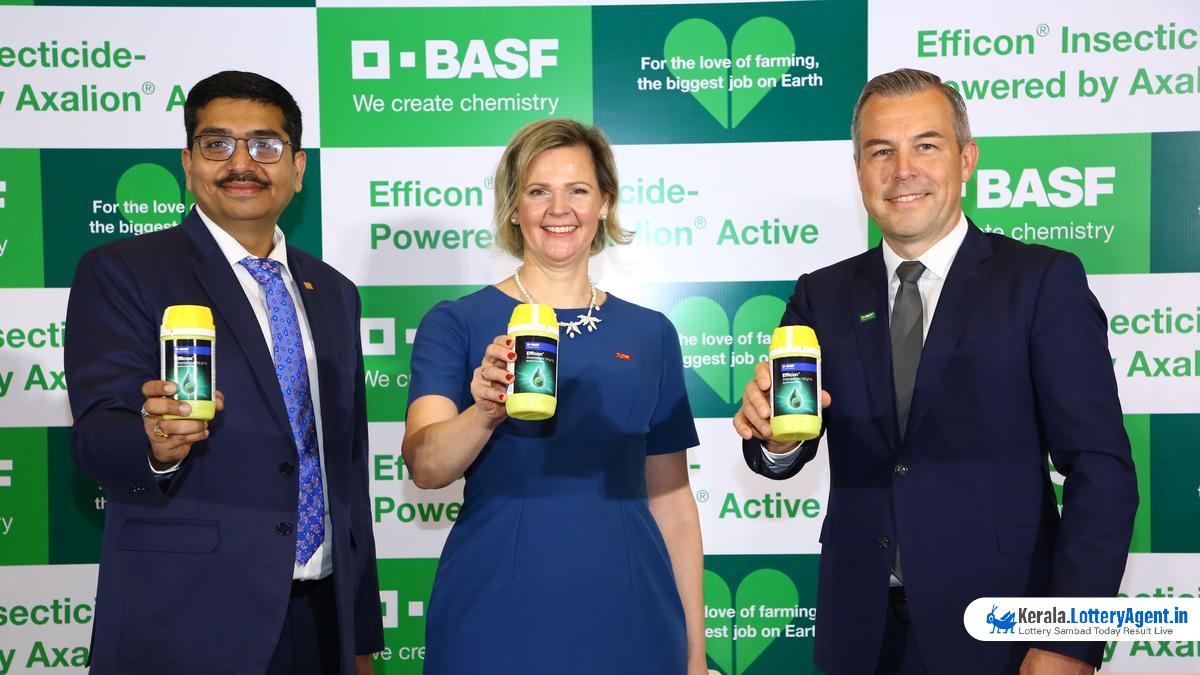
A major step forward for agricultural pest management in India was announced by BASF, a global leader in chemical solutions, with their latest introduction of Efficon, an advanced insecticide designed to combat the damaging effects of piercing and sucking pests that have been threatening vital crops across the nation.
In an event on Monday that signified a breakthrough in agricultural technology, BASF unveiled Efficon, positioning itself as an industry pioneer by bringing to market one of the first insecticides under the IRAC group 36, a new classification (Group 36 – pyridazine) in pest control chemicals.
Efficon’s entry into the Indian market closely follows its initial introduction in Australia last year, with subsequent availability in Korea. India takes the stage as one of the first countries to have access to this innovative solution. The introduction of Efficon in India underscores BASF’s commitment to supporting the Indian agricultural sector.
In response to inquiries during the product launch, Giridhar Ranuva, BASF India Business Director Agricultural Solutions, outlined the company’s roadmap for Efficon’s logistical operations, indicating plans to shift from importation to localized manufacturing within the forthcoming one to two years.
Over a period extending half a decade, BASF’s investment in India has been substantial. Ranuva disclosed that more than 300 million euros have gone towards research and the development of manufacturing capabilities in India, demonstrating BASF’s long-term investment in the country’s agrochemical industry.
Agriculture being the backbone of India’s economy, the introduction of Efficon is set to share numerous benefits with Indian farmers, especially those cultivating cotton and vegetables such as cucumber, chilli, tomato, and brinjal. These crops, he revealed, are among the first to have received government approval for the utilization of Efficon. Additionally, a nod for the application of this insecticide to protect soya bean, potato, onion, mustard, and cumin crops is on the horizon.
BASF’s operations in India have a sizable footprint, with a physical presence encompassing eight production sites, 42 offices, and a dedicated workforce exceeding 2,300 employees. Financially, BASF has recorded significant commercial traction with sales amounting to approximately 2.4 billion euros to customers in the country for the year 2023 alone. On a global scale, BASF Group, with its legion of 1,12,000 employees, generated substantial sales of about 68.9 billion euros in 2023.
The agrochemical sector, encompassing pest control solutions such as Efficon, plays a pivotal role in India’s pursuit of agricultural output stability and improvement. Pests such as aphids, whiteflies, and thrips, which are known for their destructive feeding habits, cause immense damage to crops by sucking out sap, thus transmitting viruses and causing considerable yield losses. Efficon’s cutting-edge mechanism of action holds the potential to not only provide effective control over these menaces but also mitigate the risk of developing resistance, which has historically been a major concern associated with pest management in agriculture.
BASF’s introduction of Efficon arrives at a critical juncture where farmers are increasingly seeking sustainable solutions to protect their crops and secure their livelihoods. With the imminent expansion in the scope of crops that can benefit from Efficon, the agrarian community awaits improved protection for their harvests, which may translate into greater economic gains and food security for the nation.
With Efficon’s deployment, BASF substantiates its stance as a forerunner in cutting-edge agricultural technology. This pioneering approach not only demonstrates the company’s innovative prowess but also its steadfast commitment to providing practical solutions to pressing agricultural challenges in India and beyond. As Efficon begins to take its place in the Indian farming landscape, the anticipation of its potential impact on crop health and productivity marks a new era of modern, efficient, and sustainable pest management in India’s agronomy.













